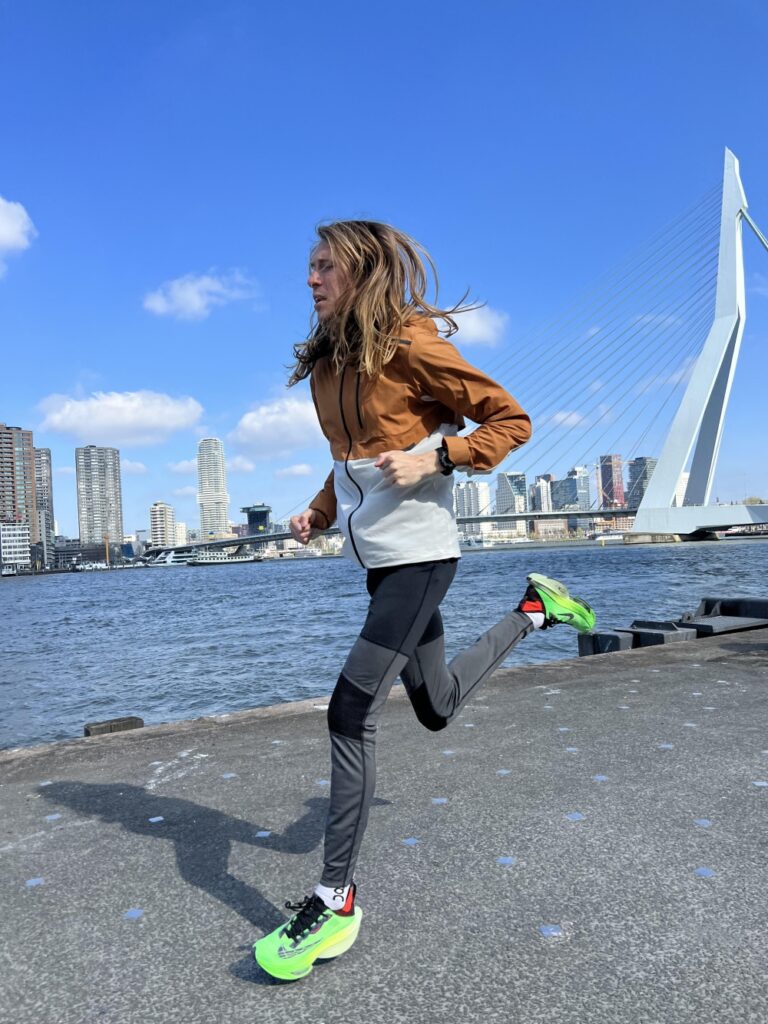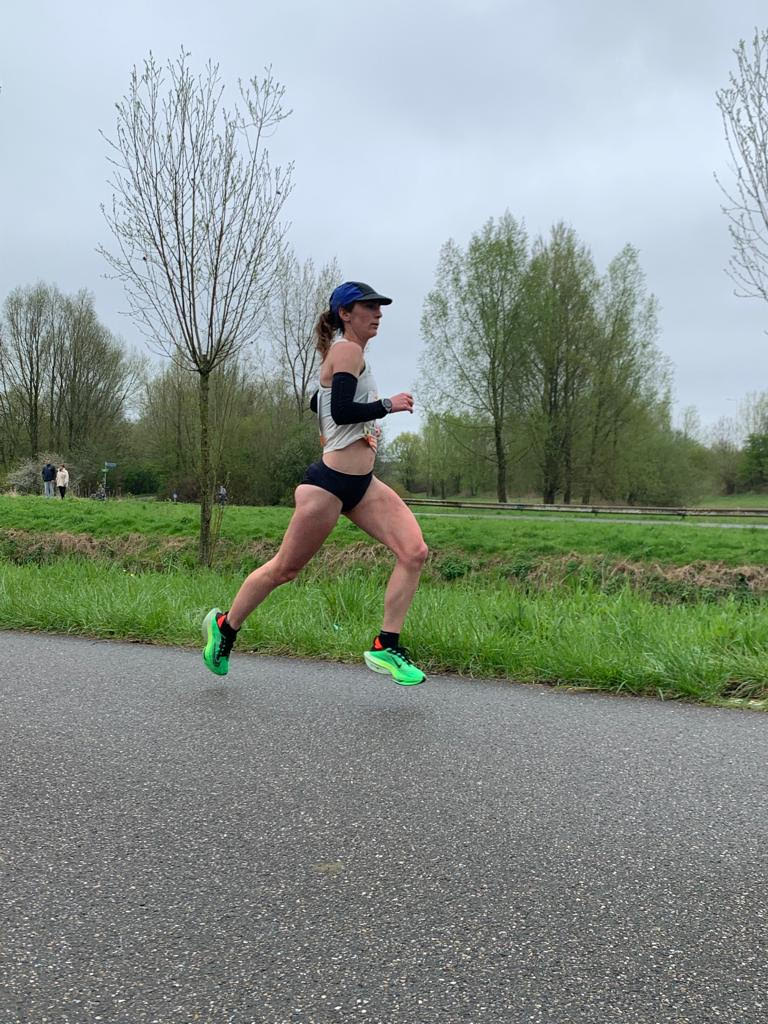
Andrew came into the Rotterdam Marathon on the heels of the best fitness of his career. As such, he came into the race with high expectations, and fittingly left with the fastest marathon of his life. Annmarie also came in with high expectations, looking to continue to the positive momentum of her 2:31 breakthrough race at Cal International in December.
Annmarie physically joined the team in January and experienced her first training stint at altitude as part of the buildup to Rotterdam. She cruised through the halfway mark right on schedule in 1:15. However, she could sense early on that her legs didn’t have a personal best in them, and after pushing through that feeling for 10k made the decision at halfway to back off a bit. She was hoping her legs would come around a bit and she would be able to pick the pace back up. They didn’t, and she maintained that pace to the finish, clocking her 2nd fastest marathon of 2:35:58.
Andrew started the race as part of a 2:09:30 pace group. One thing Rotterdam does very well is putting together pacing groups for the elite fields. Andrew joined several other athletes in a group led by 2 pacemakers. They started a bit quick and took a few kilometers to find the rhythm. Once they got settled in they steadily clipped off 3:03-04 kilometers (4:55-57 mile pace) through the opening half, passed slightly ahead of schedule in 1:04:32.
Andrew felt strong through halfway and even as the pace slowed slightly rom 20 to 30k, as expected with the headwind and bridge crossing, the group was still on 2:09:40 pace when the final pacemaker stepped off at 30k. At that point, Andrew took up the lead, continuing to run 5:00 mile pace (3:07 kilometers) into a slight headwind. He lead the group until just after 34k when fellow American Futsum Zienasellassie took a turn at the front. Futsum began to increase the pace as the group turned out of the wind.

At that point, Andrew was unable to respond to the pace increase. After feeling strong at 30k, his legs began to lock up a bit at 35k. His pace slowed to 5:15 pace from 35k to 40k and he was able to gut out those final miles to better his own ZAP record by 40 seconds. His time of 2:11:26 was also critically under 2:11:30, which could play an important (if complicated) role in next winter’s Olympic Trials.
I’ll try to explain briefly. World Athletics (the governing body of track and field at the Olympics) has an aim to fill roughly half the slots at the Olympics based on athletes achieving a qualifying standard and the other half on world ranking. The qualifying standard is 2:08:10, a time no American has achieved in the qualifying window as of yet.
So there are effectively 3 ways to qualify for the Olympic Games in the marathon.
- If you break 2:08:10 and finish in the top 3 at the Olympic Trials you are on the Olympic Team.
- If you are ranked in the top 65 in the world (with a maximum of 3 athletes from any given country included) and finish in the top 3 at the Trials you are on the Olympic Team.
- If the US has 3 athletes ranked in the top 65 in the world then any athlete who finishes in the top 3 at the Olympic Trials AND has run under 2:11:30 for the men or 2:29:30 for the women will make the Olympic Team. (Again for the top 65 ranking only 3 athletes from any given country are included – for example, Kenya and Ethiopia currently have 42 of the top 50 ranked marathoners in the world, but only 6 will count toward the ranking for the Olympics.)
I’m sure that does little to clear it up, but suffice to say, in addition to notching a personal best, Andrew’s sub 2:11:30 goes a long way in ensuring that if he crosses the line in the top 3 next February he’ll be on the Olympic Team.
You can find full results from Rotterdam here.